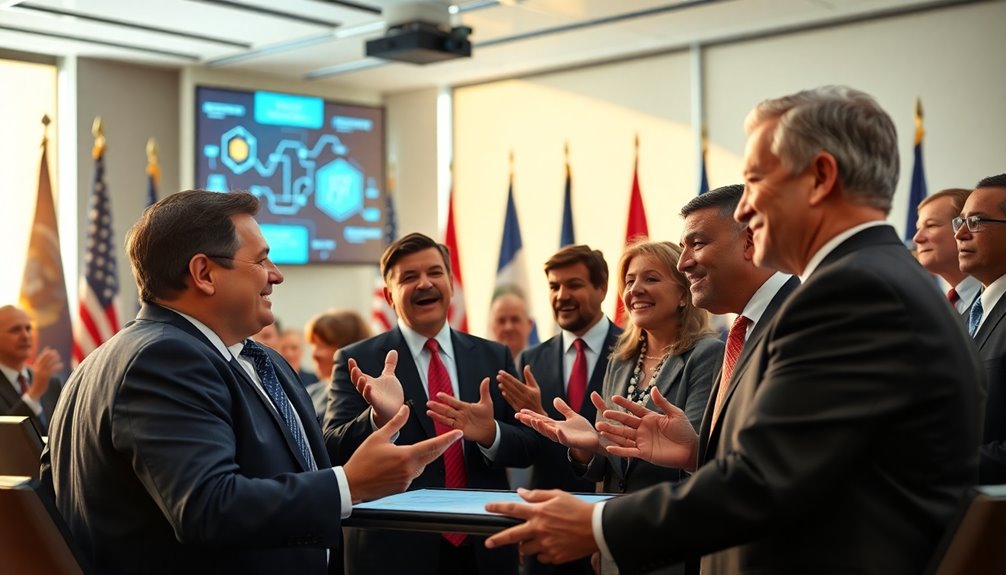You might notice that U.S. politicians are increasingly embracing AI, crypto, and DeFi as essential drivers of economic growth. With initiatives like the FIT21 Act gaining traction, there's a clear push for regulatory clarity and infrastructure investment. However, as lawmakers strive for a balance between innovation and safety, questions arise about how these technologies will reshape financial policies. What implications does this have for the future economy?

U.S. politicians are increasingly recognizing the transformative potential of AI, crypto, and decentralized finance (DeFi) as they navigate a rapidly evolving technological landscape. The Trump Administration's Stargate Project, which aims to invest $500 billion in AI infrastructure over the next four years, demonstrates a strong commitment to enhancing America's AI capabilities. This initiative aligns with Executive Order 14179, focusing on sustaining U.S. global AI dominance to bolster economic competitiveness and national security. Additionally, the recent announcement of the Stargate partnership indicates a continuity in AI infrastructure focus from the previous administration.
By rescinding Biden's 2023 AI safety executive order, the administration signals a shift towards a more growth-oriented regulatory approach, encouraging innovation in public sector technology.
When it comes to crypto, there's notable bipartisan support among U.S. politicians. The FIT21 Act is a prime example of this cooperation, as it seeks to provide the regulatory clarity needed for crypto entrepreneurs to thrive. States like Wyoming are also making strides, with the DUNA Act granting legal recognition to decentralized autonomous organizations (DAOs).
The growing influence of stablecoins as significant holders of U.S. debt is shaping financial discussions, prompting policymakers to consider the broader implications of these digital assets. Furthermore, recent SEC approvals of exchange-traded products (ETPs) mark significant milestones in crypto policy, showcasing a willingness to embrace this innovation.
The rise of stablecoins as major U.S. debt holders is reshaping financial policy discussions and fostering regulatory innovation.
In the realm of DeFi, the emphasis on decentralization resonates with the ongoing crypto policy discussions. While DeFi presents regulatory challenges due to its lack of clear oversight, it's recognized as a key area for financial services innovation. Politicians are beginning to acknowledge the potential of blockchain technology, which underpins DeFi, and its importance in modern legal frameworks.
However, a lack of specific U.S. policies addressing DeFi means that its future remains uncertain, despite its inclusion in broader crypto dialogues.
As U.S. politicians grapple with AI and crypto, they're also considering the implications of geopolitical competition. Maintaining leadership in AI development is crucial, particularly as public sentiment shifts regarding the risks and benefits of these technologies.
While the balance between safety-first regulations and growth-oriented policies is delicate, the current landscape suggests a favoring of innovation. Ultimately, the evolving outlook on AI, crypto, and DeFi reflects an understanding of their importance in shaping the future of the economy and technology, indicating that politicians are taking proactive steps to harness their potential.









